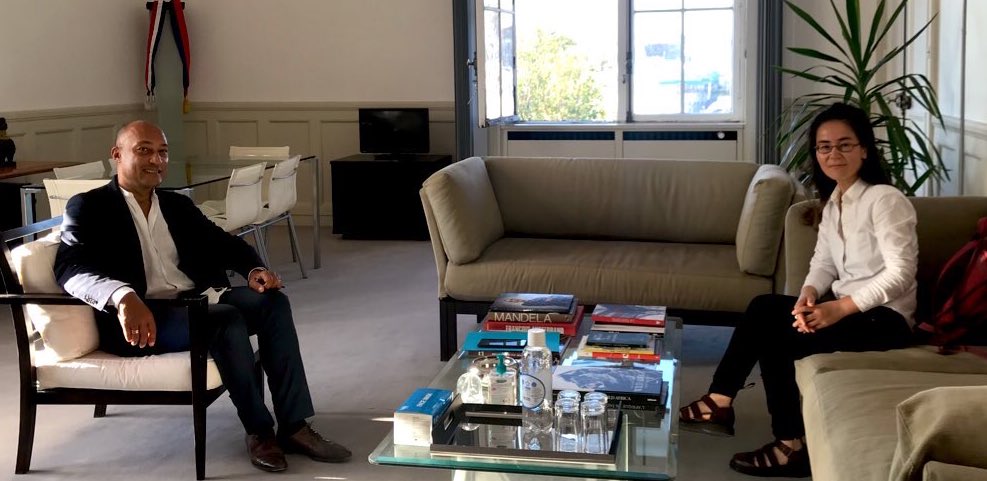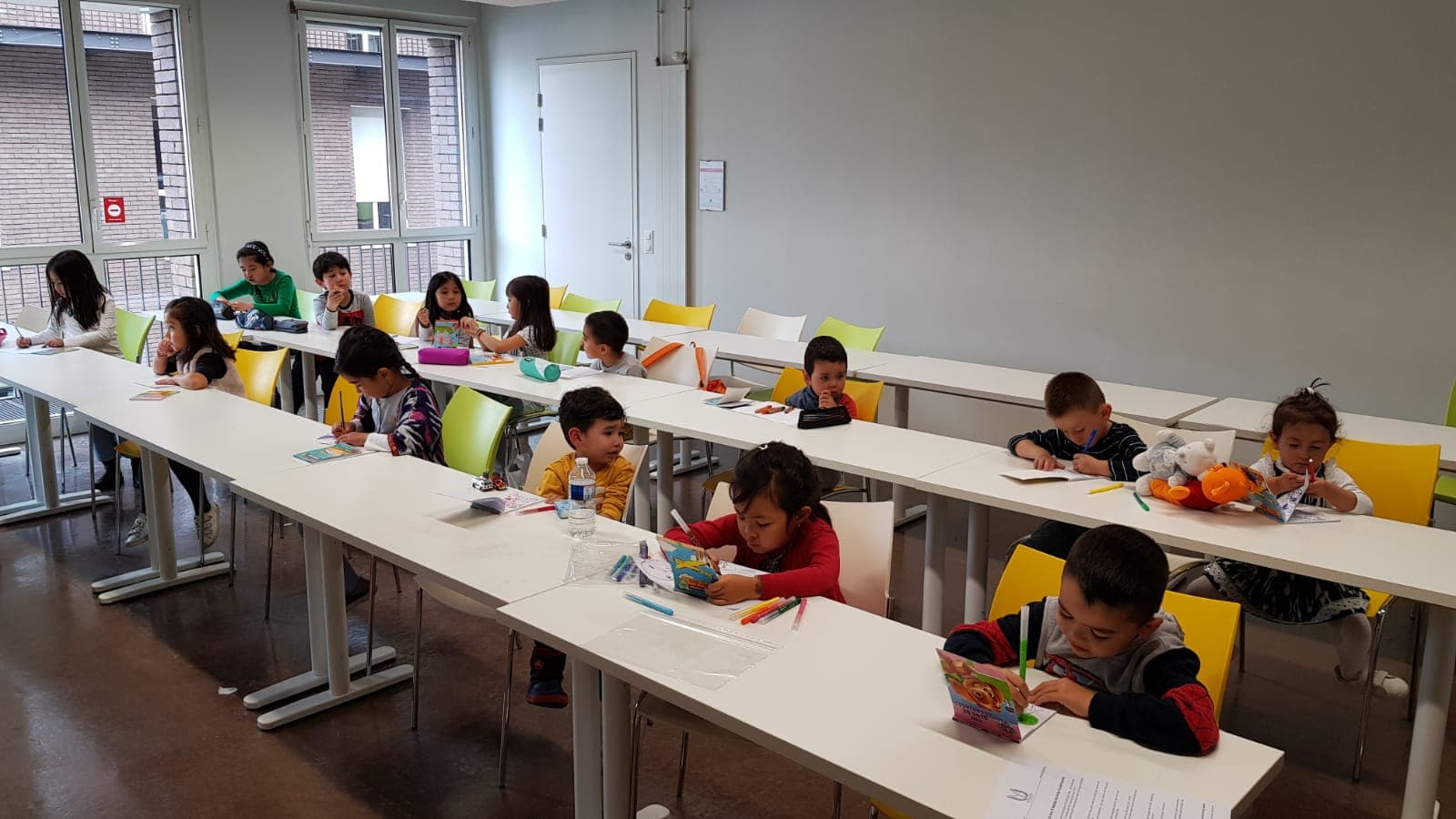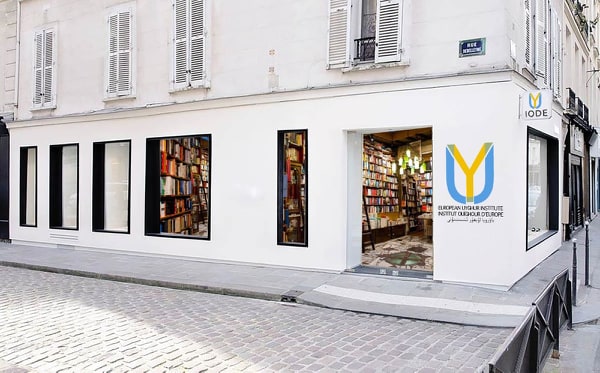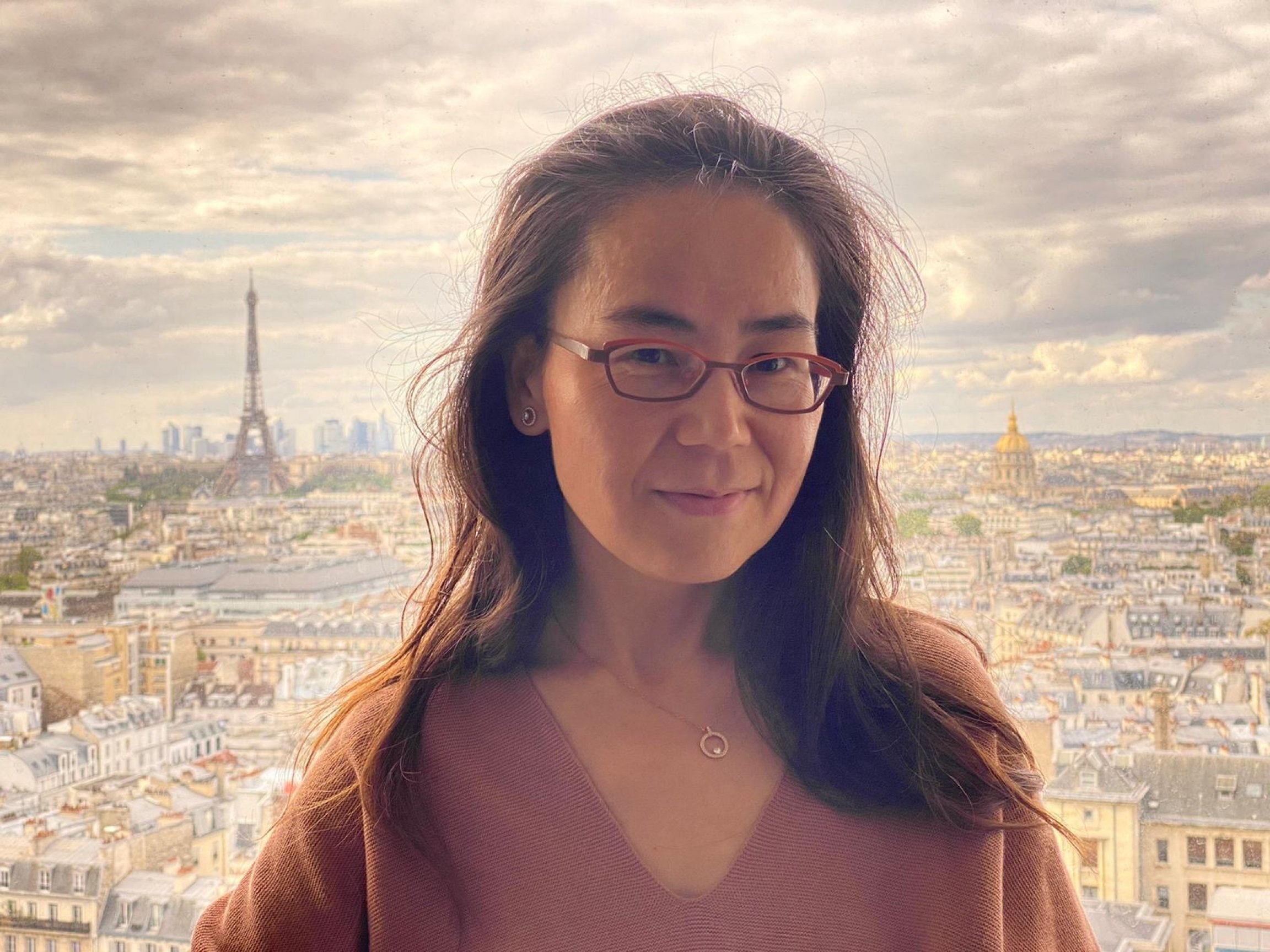To better understand Uyghur freedom struggles, I was honored to interview Dr. Dilnur Reyhan, president of the European Uyghur Institute. We discuss the work of her institute, how feminism is central to Uyghur resistance and many other topics on her urgent and vital work.
Asia Art Tours: Could you give a brief introduction to your project: The European Uyghur Institute? And how have you been working with states, media or capital to try and bring attention (and pressure) against China’s policies in The Uyghur Region?
Dilnur Reyhan: In the European Uyghur Institute administration team, we are dozen of young Uyghurs and French researchers and students on the Uyghur studies. The main purpose of the institute is to promote Uyghur culture and language not only among European Uyghur diaspora but also among Non-Uyghur Europeans, and to prAomote a young, secular, highly educated and proudly Uyghur European generation. This will be realized by organizing Uyghur language and cultural courses (music and dance), Uyghur studies conferences, Uyghur library, Uyghur tea house, Uyghur cuisine and finally an Uyghur Press House.
An introductory video from the European Uyghur Institute: “We have chosen Paris to be the seat of the EUI because, throughout the last decade, thanks to the cultural and academic pursuits of the Oghouz organisation (the organisation of Uyghur students in France) France has become the most dynamic country in terms of presenting Uyghur culture in a university environment.” – Video Credit: European Uyghur Institute
Since early 2019, I multiplied all kind of media interviews including French national television programs but also conferences not only at the universities but also in political instances such as European Parliament, French-speaking countries’ political spheres. My close collaboration with the French EMP Raphael Glucksmann since October 2019 was the most fruitful: together we have successfully mobilized almost whole French young people for the Uyghur cause. This Uyghur (blue) vague in French society in 2020 have even influenced other French speaking countries like Belgium, Switzerland and even Quebec in Canada. In France, with my initiative, we have found Uyghur Solidarity Collective in French Parliament on October 1, composed by 55 French MPs for Uyghur cause. I have also proposed a “Solidarity Chart with Uyghurs” to sign for all political parties and the mayors of different cities. This chart contains six articles demanding to push the government to sanction the Chinese regime, protect Uyghurs in France, offering financial support for Uyghur associations and cutting all financial support for Confucius institutes. Until now, 7 political movements and 10 cities have signed this chart. All these are the result of French young people’s pressure on their political representatives.
 President of EUI, Dilnur Reyhan meeting with the deputy Mayor of Paris Arnaud Ngatcha to discuss the importance of safeguarding the Uyghur language and culture. Photo Credit: European Uyghur Institute
President of EUI, Dilnur Reyhan meeting with the deputy Mayor of Paris Arnaud Ngatcha to discuss the importance of safeguarding the Uyghur language and culture. Photo Credit: European Uyghur Institute
Asia Art Tours: The Hong Kong philosophy of ‘兄弟爬山各自努力’ (Two brothers climbing the mountain, each in their own way) greatly interests me. This political philosophy had liberals, leftists and conservatives collaborating on techniques and tactics to protest and dissent against Xi Jinping’s governments.
For the Uyghur Region which has seen figures on the left, liberal, and conservative backgrounds all work together, do you see a similar philosophy that’s emerged? – And roughly speaking, how do ‘progressive or left’ positions on the Uyghur Region differ from more centrist or conservative positions?
Dilnur Reyhan: Yes, absolutely the same situation in the Uyghur diaspora: ideologically much divided because of the different values (left, right, liberal or conservatives, religious or secular…) and different diasporic environment (European Uyghurs, North American Uyghurs, Turkish Uyghurs or Middle Eastern Uyghurs and finally Central Asian Uyghurs) influenced by their own political and cultural environment of the host country, but one only line is common for all : Taking back the Uyghur homeland against Chinese colonizers. Each one climbing in their own way with a relative harmony to not attacking each other but having only one common enemy. Since the Chinese genocidal politics in the Uyghur Region, this common line have been established in the diaspora more effectively and more widely.
For being frank, most of diasporic Uyghurs are conservatives, at least among those who are visible in the stage and in the social networks. The difference between the leftist Uyghurs and conservatives is on the societal questions (gender equality, homosexuality, social rights, and minority questions in the host countries…), not much on the political final line, especially since 2017.
 To preserve language and culture, the institute offers language training courses are made both for Uyghur kids of the diaspora and for non-native speakers. – Photo Credit: European Uyghur Institute
To preserve language and culture, the institute offers language training courses are made both for Uyghur kids of the diaspora and for non-native speakers. – Photo Credit: European Uyghur Institute
Asia Art Tours: For protests movements globally, ‘Mutual Aid’ has been a philosophy that’s proven to be quite powerful in standing up to the violence of State or Capital. Within the Uyghur Region, what new Mutual Aid tactics have emerged among Uyghurs, Kazaks and other diasporas to help those affected by the Genocide in the Uyghur Region ?
Dilnur Reyhan: Uyghur organizations in the diaspora, especially in Turkey and in the USA have helped also Kazakhs camp survivors, and diaspora Uyghurs and Kazakhs have been helped by the Non-Turkic activist Gene Bunin in his work of shahit.biz gathering all the testimonies of Uyghurs and Kazaks. And diaspora Uyghurs have participated financially also to this project to endure it. Sayragul Savutbay, a Kazakh teacher of the concentration camps who lives now in the Seweden, was assisted by Uyghurs in Sweden to her interviews for media and Uyghurs in Germany have organized meetings and book presentation events in Germany for her, assisting her in translation in German in the occasion of publication of her book in German. And also, Kazakhs survivors in Kazakhstan have testified about the terrible situation especially for Uyghurs by the Chinese state. Uyghurs and Kazakhs are the two main targets of the Chinese genocidal project and they should develop mutual aid against their mutual enemy.
Gene Bunin’s Xinjiang Victims Database (Shahit.biz), is one of the most comprehensive datasets of the victims of China’s campaign of mass imprisonment. Coupled with the video testimonials of their Uyghur Pulse Channel, it makes a factual and emotional plea to stop the genocide of the Uyghur Homeland. Read our interview w. Gene Bunin here.
Asia Art Tours: Prior to large-scale PRC state repression, what were the main issues within their communities that local feminists were working on in the Uyghur Region? And did Uighur feminists have the chance to connect to other feminists in other Islamic communities in China such as the Kazakh or the Hui?
Dilnur Reyhan: Local feminism before this State terror among Uyghurs focalized mainly on the debate on the place that men should take at home to share domestic works as today’s women work as men at outside and take all responsibilities of domestic charges after work. We cannot even call it feminism, because even those several women figures who take the stages to talk to women or in the chat groups those Uyghur intellectual women have founded during 2013-2016. Another social phenomenon of Uyghur women before the Chinese terror was the social network movement of “Mothers who educate”. Initiated by several intellectual women from diaspora and from the Uyghur Region, they founded at first an intellectual circle composed of 40 most influential women of different intellectual and social sections of Uyghur society and Uyghur diaspora. They called this circle as “Circle of intelligence”, a kind of source of knowledge. All the social and societal questions even taboo topics as homosexuality and even minority rights have been debated. Then those who live in the Uyghur Region have shared these debated contents to other women in the universities or in the women gathering. Then they encouraged women to use the WeChat in the positive way to educate themselves for the benefice of their children. Huge chat groups of hundred women have been opened in WeChat by motivated women in the whole Uyghur Region and those 40 members of “circle of intelligence” were invited to these multiple women groups to give speech on these topics debated in the circle to educate Uyghur mother who could become “mothers who educate” their children, not only being “mothers who raise”. Other women movement in the Uyghur society was the movement of retired mothers who organize different charity activities to help the young Uyghur children of poor families to continue their school life until university graduation.
 Photo of the European Uyghur Institute.
Photo of the European Uyghur Institute.
Asia Art Tours: And why should what’s happening in the Uyghur Region concern or be important to feminists globally?
Dilnur Reyhan: When we talk about women in conflict, very often we talk about situations in armed conflict. However, very few about women in colonial situations where there is no necessarily a collective armed violation but colonial violence, could be both physical and psychological, just as destructive or even more destructive as is the case of Uyghur women since the end of 2016. The fact that a whole population is in the process of being eradicated through the mass sterilization of its women has not been enough to draw even the slightest bit of attention from feminists of the world. As for public institutions for women’s rights such as UN Women or European states’ different departments dedicated to such issues, they have all been completely silent. Evidently, the rights of Uyghur women do not interest them, they are indifferent to them.
Gender minorities in the West are too busy with their own activism. When ethnic-religious minorities fall victim to discriminations and even gross violations of their human dignity and existence, solidarity is suddenly a foreign concept. Minorities should be the sun of other minorities.
Female scholars and resistance has been critical for Uyghurs resisting China’s state violence: “In December 2020, Rahile Dawut, a Uyghur anthropologist was named the first Open Society University Network, Honorary Professor in the Humanities. . . Since December 2017, Dawut has disappeared after being detained by state authorities as she planned to travel to Beijing for a conference.” – Video Credit: The Art of Life in Chinese Central Asia
Asia Art Tours: Hong Kong’s absorption into China has made visible the logics of all these forces we’ve discussed today. Crassly put, those whose talents are useful to elite capital or STEM are saved, those who are not have to pray for entry. How have we seen these phenomena in relation to the Uyghur Region? And what does it mean to flee the borders of prisons in the Uyghur Region and China only to be met by the brutal border politics (or walls) of Western states?
Dilnur Reyhan: Since the last four years (since 2017), there are very rare number of Uyghurs who could come out from the Uyghur Region. In the case of France, we did not received any new Uyghur student since 2017 from the Uyghur Region. All new Uyghurs who arrived to Europe since then are Uyghurs living in Turkey. Kazak camp survivors mentioned the impossibilities for ethnic Uyghurs to cross the border or get a Turkic visa (Kazakh, kirghiz or ozbek who have their visa bureau in Urumchi, Uyghur capital). Among the more than 2000 survivors, there are very few Uyghurs of Chinese citizenship (and they are often family members of a foreign citizen or herself/himself has a foreign citizenship). The majority are Kazakhs (ethnic Kazakhs of Chinese citizenship or Kazakh citizenship). So this question does not concern Uyghurs.
Hong Kong Pop star and activist Denise Ho, speaking of solidarity with Uyghurs. As Chinese state violence continues to expand, it will be important for activists and organizers from many different regions to find each other and build solidarity – Video Credit: European Uyghur Institute.
Asia Art Tours: Lastly, one area that’s encouraged me is the ‘Milk Tea Alliance’ of digital support between Hong Kong, Taiwan, Thailand. I wanted to ask if the Uyghur diaspora has built similar ‘alliances’ to other communities and netizens? As well as your thoughts on how Digital Activism can help Uyghurs both now and in the future?
Dilnur Reyhan: I do not know any this kind of official alliance between Uyghurs and other autochthones of Uyghur Region at outside. However, Uyghurs and Kazakhs support each other and others are not very visible in the diaspora. Often Uzbeks from the Uyghur Region melted to the Uyghur diaspora. However, Uyghurs and Tibetans have alliance and mutual support, mutual activities in the western countries.
Digital activism is the most efficient arm today’s world, because most of the people learn the news via the digital media. Social networks are the most important platforms to Uyghur activism, because almost all young people are on social networks (Instagram, snapchat) and all influential people are on Twitter. In France, we have mobilized almost whole France for Uyghur cause by using actively and strategically Instagram during a year. French young people who have learned for Uyghur crisis have pushed their deputies to support Uyghurs. With this vague of young people for Uyghur cause, finally French politicians have paid attention for us. In addition, the French vague have also influenced other countries, especially French speaking countries and regions like Belgium, Switzerland and Quebec.
 Uyghur Institute President, Dilnur Reyhan – Photo Credit: Dilnur Reyhan
Uyghur Institute President, Dilnur Reyhan – Photo Credit: Dilnur Reyhan
For more on Dilnur’s important work, please follow the Uyghur Institute as well as her twitter.
